第9章 Chapter (2)
The rich produce of New Spain, the West Indies, and the Southern Colonies of the English, were rare temptations. The privateers of Spain and France, a sort of legalized pirates, hung about the ports of Carolina, frequently subjecting them to a condition of blockade, and sometimes to forced contributions. In the occasional absence of the British armed vessels appointed for the protection of these ports, the more enterprising and spirited among their citizens frequently fitted out their own cruisers, drawing them, for this purpose, from the merchant service; manning them in person, and requiting themselves for their losses of merchandise by the occasional capture of some richly laden galleon from New Spain. No doubt the imagination of young Marion was fired by hearing of these exploits. The sensation produced in the community, by the injuries done to its commerce, in all probability gave the direction to his already excited and restless disposition. It does not appear, however, that Marion's first and only voyage was made in an armed vessel.
Such, we may well suppose, would have been his desire;but the period when he set forth to procure service upon the seas, may not have been auspicious. He may have reached the seaport a moment too soon or too late, and the opportunities of this kind were necessarily infrequent in a small and frontier city, whose commerce lay mostly in the hands of strangers. His small size and puny appearance must have operated very much against his hopes of obtaining employment in a service which particularly calls for manhood and muscle.
In what capacity, or in what sort of vessel he obtained a berth, we are left wholly to conjecture. Choosing the sea as a vocation, and laudably resolved on acquiring a proper knowledge of his business (as from what we know of his character, we may suppose was the case), he most probably went before the mast. His first and only voyage was unfortunate. The ship in which he sailed was no doubt equally frail and small. She foundered at sea, whether going or returning is not said; in consequence, we are told, of injuries received from the stroke of a whale, of the thornback species. So suddenly did she sink, that her crew, only six in number, had barely time to save themselves.
They escaped to the jolly boat, saving nothing but their lives.
They took with them neither water nor provisions; and for six days, hopeless of succor, they lay tossing to and fro, upon the bald and cheerless ocean. A dog, which swam to them from the sinking vessel, was sacrificed to their hunger. His raw flesh was their only food, his blood their only drink, during this distressing period.
Two of their number perished miserably.* The survivors, on the seventh day, were found and taken up by a passing vessel, nourished carefully and finally restored to their homes.
--
* Weems represents the captain and mate, as throwing themselves overboard in a state of phrenzy, and there is nothing improbable or unnatural in the statement. Privation of food, the use of salt water, and exposure in an open boat to a burning sun, might very well produce such an effect. The only difficulty, however, consists in the simple fact that we have no other authority for the statement. James is silent on the point, and contents himself with simply stating the death of two of the crew. Weems, however, adds that of two others, whose end receives, as usual, quite a dramatic finish at his hands. He suffers none to live but "little Marion", and, in the exuberance of his imagination, actually goes so far as to describe the particular food, "chocolate and turtle broth", by which the youthful hero is recruited and recovered. By this he designs to show, more emphatically, the immediate interposition, in his behalf, of an especial providence.
The truth is, that any attempt at details where so little is known to have been preserved, must necessarily, of itself, subject to doubt any narrative not fortified by the most conclusive evidence.